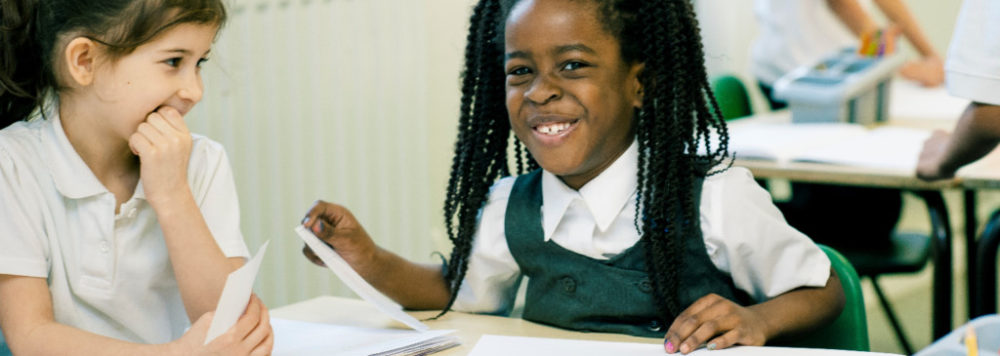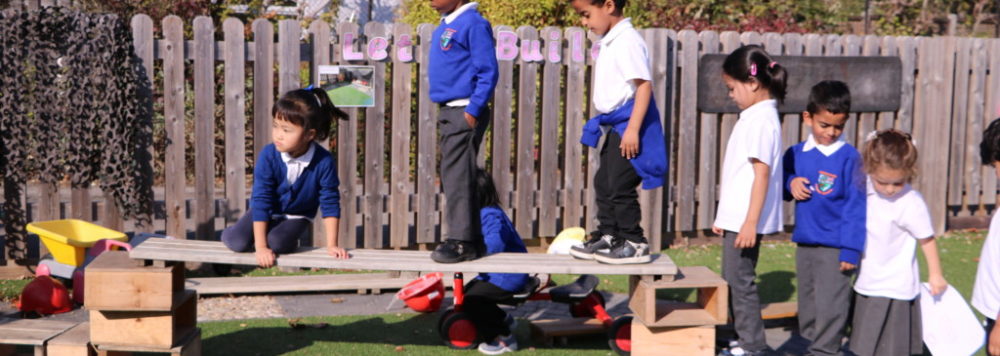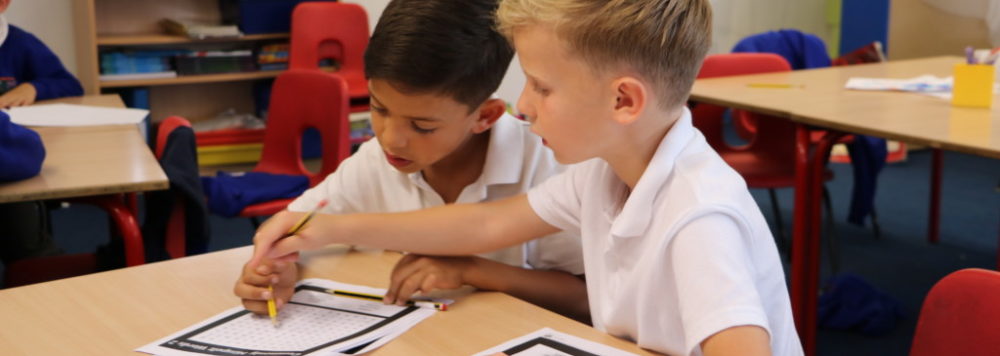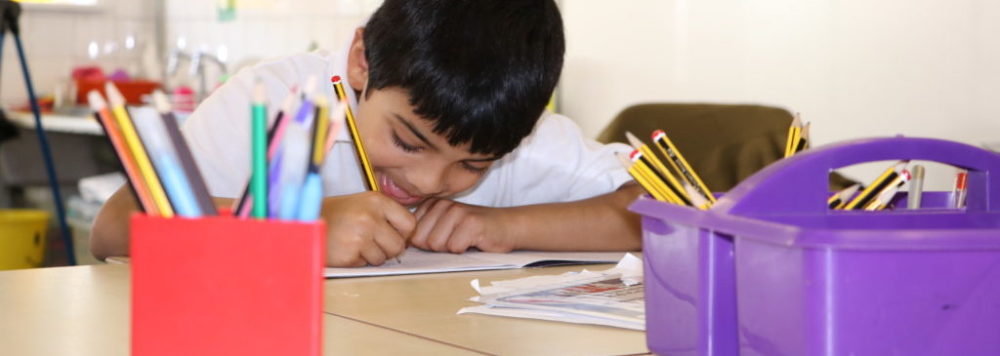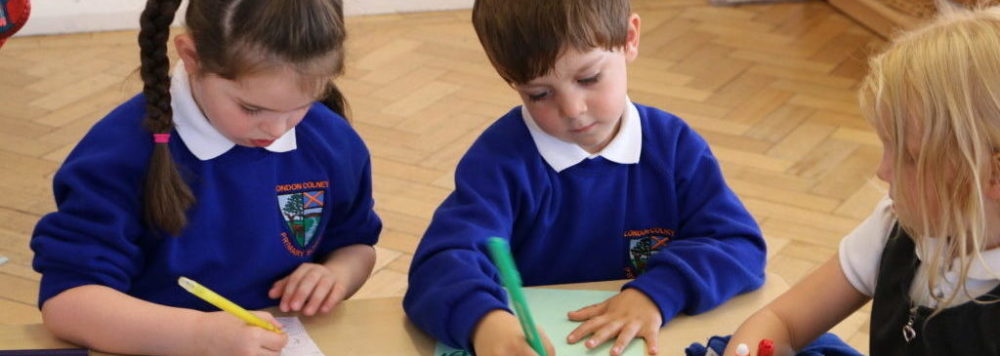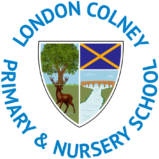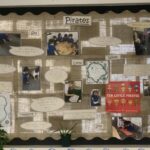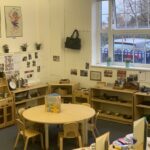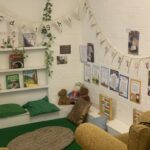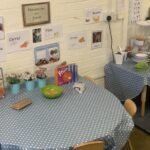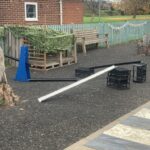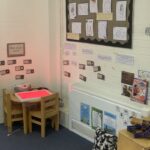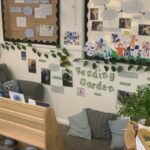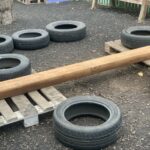Welcome to our Early Years Foundation Stage.
Here at London Colney, we believe in children having the strongest start to their education as possible and place a strong emphasis on our Early Years Foundation Stage. Our EYFS is made up of our Nursery and Reception class and is taught and lead by teachers and staff who know each and every child in their care.
Meet Our Team
Our Reception Class Teacher is Ciara James.
Our Nursery Teacher is Hannah Sesstein – Hogg
Our Lead Practitioner is Domenica Torrano and our Learning Support Assistant is Chloe Joyce.
Our Intent for Our EYFS
By the time our pupils leave the EYFS and in order to be ready for Y1, we intend for them to:
- Be respectful, creative, confident and successful pupils, who are developing their identity and are ready to continue their education in KS1.
- Be able to communicate effectively, being able to speak confidently, listen and respond appropriately and sustain conversations in a wide range of situations, including role play.
- Know how to form, develop and sustain effective relationships that are built on mutual respect, appreciation of difference, kindness and friendship. Our children will be equipped with the skills to manage and resolve their own conflicts and help others to do so.
- Understand the importance of being physically active and enjoy adopting a healthy lifestyle and keeping fit. We support our children to make healthy lifestyle choices and teach them about nutrition. In all that they do they are safe and recognise their own risks.
- Be confidently literate for the stage of their development. Our children will have a growing love of reading and will be able to use the phonics learnt to read books that are well matched to their level of reading. Our children will view writing as enjoyable and purposeful and will have the skills to write a plausibly simple sentences.
- Be increasingly confident mathematicians, having a secure understanding of early maths. We want our children to have a conceptual understanding of numbers and counting (being familiar with concrete and pictorial strategies) and use this to begin to calculate.
- Have an appreciation of the world around them and show curiosity, wanting to ask questions and seek the answers. Our pupils will have developing ability to use technology appropriately and safely. Our children will be expressive and enjoy using the arts to convey meaning or engage in storytelling.
Our Golden Threads
As part of our intention for our Early Years Foundation Stage, we thought about what we wanted our ‘Golden Threads’ to be. These ‘Golden Threads’ are the key, measurable knowledge and/or skills we want to have helped the children develop by the time they leave Reception. The children work on these during their time in Nursery and Reception and encompass not only academic skills and knowledge but aspects that will help them be more confident and independent in life. Here are our ‘Golden Threads’.
| Nursery | Reception |
|
|
Our EYFS Curriculum
“Great care and precision has been put into the robust and detailed curriculum plan for Reception. Progression across all areas is planned for on a half term basis. For example in Writing in Autumn 1 children will be experimenting with mark-making and writing patterns in a range of mediums, towards a tripod grip. Children will start to give meaning to marks and labels. Children will begin to write letters from their names. By the end of Summer 2 children are story writing, writing one sentence, beginning to use full stops, capital letters and finger spaces. Familiar texts are used as a model for writing their own stories. Children are also able to write consonant-vowel-consonant (CVC) words to label characters from stories. Planning through all strands of the EYFS curriculum is plotted in detail. In addition there is explicit planning to support parental engagement, as well as those “Wow moments.” (These are first hand experiences that support the children to receive a high quality education and seeing the positive impact that this has as they grow.) All the planning is cohesively aligned to the broad themes of the learning journey for the EYFS pupils related to “All about me,” “Terrific tales, ““The great outdoors,” “Amazing animals,” “The wide world” and “On the move.” – Hertfordshire Improvement Partner 2022.
Here you can see our long term plan for our Reception Class.
[downloas category=eyfs+long-term-plan]
Our Learning Environments
We know at London Colney that the learning environment works as the third adult, supporting and helping to develop the children to be independent, curious and risk takers. We spend a long time reflecting on and evaluating our EYFS learning environments so that they are effective, enriching and specific to the children in our cohorts. We aim for our learning environments to inspire our children to learn through play and develop their interests and next steps in their skills and knowledge. We aim to create provisions that are natural and authentic so that children are able to make connections to learning wherever they are with whatever they have available. Here are some of our previous learning environments.
Assessment in our EYFS
- Autumn 2 Reception Curriculum Leaflet (192.52KB)
- Autumn 2 Nursery Curriculum Leaflet (288.81KB)
- Autumn 2 Reception Family Learning Project (512.26KB)
- Autumn 2 Nursery Family Learning Project (335.32KB)
- EYFS - Reception Long Term Curriculum Plan (591.46KB)

